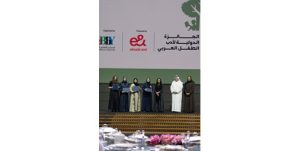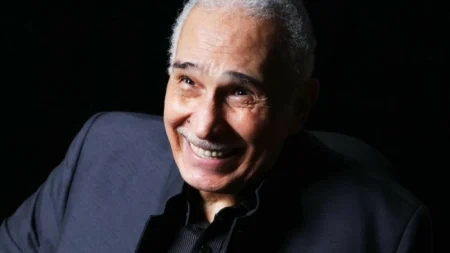يذكر أن كثيراً من النصوص التي يصدر بها «الشعراء تصورهم لأمتهم في مواجهتها للآخر جرت على قواعد المنطق الأرسطوطاليسي القديم؛ وهو منطق يصلح للجدال أكثر مما يصلح لاكتشاف الحقائق التي أدت إلى هذا الجدال، وأصبح النقد يدور حول دوائره النسقيَّة الجمالية من غير أن يتوجَّه إلى كشف عيوب خطاباته، ولتوضيح الرؤية نشير إلى أن الشعر السعودي في خطاباته عن الآخر الغربي ينتشل أمته من حاضرها ويزج بها في الماضي، ثم يحاكمها قياساً على هذا الماضي، واستعمل هذه التورية الثقافيَّة في كثيرٍ من نصوصه الشعريَّة، وبذلك فهي تتخذ من الازدواج الدلالي في منظورها للأمة نسقاً مضمراً في قياسها اللاواعي قياساً منطقيًاً أو تفكيراً نظاميّاً بعيداً عن الواقع، وكان ذلك ناتجاً عن مفهوم «النسق الاستنباطي» كما يراه المنطق الصوري الحديث، ونعني بالنسق الاستنباطي -كما يقصده المناطقة المحدثون- أنه يتألف من مقدمات معينة ونتائج تلزم عن تلك المقدمات وفق قواعد معينة، وتضم المقدمات مجموعة من الأفكار الأولية أو اللامعرفات، وعدداً من التعريفات وبعض المسلّمات أو الصادرات، وقد عرّف رسل الاستنباط بـ«أنه تلك العملية التي ننتقل بواسطتها من معرفة قضية كمقدمة إلى معرفة قضية أخرى كنتيجة، وأن يستلزم هذا الانتقال وجود علاقة أو علاقات معينة بين المقدمات كأساس للوصول إلى النتيجة، والعلاقات المنطقية متعددة، وأكثرها أهمية علاقة التضمن أو ما نعبر بقياس شرطي متصل»، ويمكن أن نورد مثالاً لأقيسة الشعراء المنطقية على الأمة:
مقدمة كبيرة: الأمة لها ماضٍ عريق
مقدمة صغيرة: الأمة في الماضي منتصرة
نتيجة: إذا يجب على الأمة أن تعود للماضي
وفي ظل ذلك انضوى في تصور الشعر السعودي للآخر عوامل عديدة أدت إلى وجهات نظر مختلفة، فقد نظر الشعر السعودي للآخر من عدة منطلقات أسهمت في اختلاف الرؤى والأفكار بحسب منظومة كل شاعر، نستهل ذلك برائد الحداثة في الشعر السعودي محمد حسن عواد الذي رأى في الآخر الحضارة والفكر والعمل من منطلق فلسفته في الحياة العصرية، وصبغ الفكر الإنساني بصباغ الآراء والنظريات الصحيحة المنقحة التي اكتشفها العلم الحديث أو أنتجتها الآداب الراقية، وانعكست فلسفته في مذهبه في الشعر والفن، فهو يرى أن الفن ينبغي أن يتحرر من الجمود، والجمود في الفكر لديه كالتطرف فيه، وكلاهما داء عضال يضر بعقلية الإنسان، ويتكون الأدب العصري الصحيح لديه بطرف من الفلسفة، وقبس من التاريخ، ومزيج من السياسة، ولمحة من العواطف، وتيار هائل من التفكير.
ويبدو جليّاً في نص الخطاب دعوة العواد إلى التجديد في الفكر، وتفكيك قدسية القديم والتحول إلى نظريات الحقائق الصحيحة التي اكتشفها العلم الحديث، ودعا أيضا إلى تحطيم منظومة عادات وتقاليد استحالت إلى البلى لا تحقق رقي المجتمع وحضارته، ومن هذا المبدأ واجه الفكر الديني والمجتمعي معاً أخطر مشروع فكري من صنمية الاعتقاد بالرأي الواحد، ونعني بذلك ادعاء الأحقية واستلابها من الآخر ووضعه موضع الاتهام والتصفية سنوات طويلة، ونحن في المقابل بحاجة إلى سنوات طويلة؛ لإعادة الجسور مع المثقف/ المفكر الجاد بصفته الشريك في تمكين المجتمع وضمان حقوقه ومصالحه، والعودة إلى الاجتهاد والعقل بعد عقود من الركود والإحباط، فقد اتخذت هذه الفئة من المنطق القديم الجدل العقلي الذي يستنتج الأفكار التي يريدها؛ للتأثير في المجتمعات والخضوع لها، ووفقا لهذا المنطق يمكن أن نفسر علة إذعان بعض فئات المجتمع من الأميين والمتعلمين وامتثالهم لخطاباتهم؛ وذلك لاستناد هذه الفئة إلى الحقائق المطلقة وأدلجتها بعباءة الدين عبر إعلام المنابر، ففي السياق ذاته يرى الوردي أن المنطق العقلاني الذي أنشأه الإغريق كان حركة تقدمية بالنسبة لزمانه، ولكنه تحول مع مرور الزمن إلى حركة رجعية، إنه كان ثورة على التفكير الخرافي في العصور القديمة، ثم صار فيما بعد عقبة تجاه التفكير العلمي.
It is noted that many of the texts issued by “poets depict their nation in its confrontation with the other” followed the rules of ancient Aristotelian logic; a logic that is more suitable for debate than for discovering the truths that led to this debate. Criticism has become centered around its aesthetic systemic circles without addressing the flaws of its discourses. To clarify the vision, we point out that Saudi poetry in its discourses about the Western other pulls its nation from its present and plunges it into the past, then judges it based on this past. It has employed this cultural allusion in many of its poetic texts, thus adopting a dual semantic perspective in its view of the nation as an implicit system in its unconscious logical measurement or systematic thinking far removed from reality. This was a result of the concept of “deductive system” as seen by modern formal logic. By the deductive system, we mean – as modern logicians intend – that it consists of certain premises and conclusions that follow from those premises according to specific rules. The premises include a set of initial ideas or unknowns, a number of definitions, and some assumptions or exports. The process of deduction has been defined as “the process through which we move from knowing a proposition as a premise to knowing another proposition as a conclusion, and this transition requires the existence of certain relationships between the premises as a basis for reaching the conclusion. The logical relationships are multiple, and the most important of them is the relationship of inclusion or what we express as a connected conditional inference,” and we can provide an example of the logical inferences of poets regarding the nation:
Major premise: The nation has a glorious past
Minor premise: The nation was victorious in the past
Conclusion: Therefore, the nation must return to the past
In light of this, various factors contributed to the Saudi poetic conception of the other, leading to different viewpoints. Saudi poetry has viewed the other from several perspectives that contributed to the diversity of visions and ideas according to each poet’s system. We begin with the pioneer of modernity in Saudi poetry, Muhammad Hasan Awad, who saw in the other civilization, thought, and action from the perspective of his philosophy of modern life. He colored human thought with the hues of correct, refined opinions and theories discovered by modern science or produced by high literature. His philosophy reflected in his approach to poetry and art, as he believed that art should be liberated from stagnation, and stagnation in thought for him is akin to extremism; both are chronic diseases that harm human mentality. The correct modern literature, in his view, consists of a touch of philosophy, a glimpse of history, a mix of politics, a hint of emotions, and a vast current of thought.
Awad’s call for renewal in thought is clearly evident in the text of his discourse, advocating for the dismantling of the sanctity of the old and transitioning to the theories of correct truths discovered by modern science. He also called for the destruction of a system of customs and traditions that have become obsolete and do not achieve the advancement and civilization of society. From this principle, he confronted both religious and societal thought with the most dangerous intellectual project of idolizing the belief in a single opinion, meaning the claim of entitlement and its usurpation from the other, placing it in a position of accusation and elimination for many years. In contrast, we need many years to rebuild bridges with the serious intellectual/thinker as a partner in empowering society and ensuring its rights and interests, and to return to diligence and reason after decades of stagnation and frustration. This group has adopted the old logic of rational debate that deduces the ideas it desires to influence societies and subjugate them. According to this logic, we can explain the reason behind the submission of some segments of society, both illiterate and educated, and their compliance with their discourses; this is due to this group relying on absolute truths and ideologizing them under the cloak of religion through the media of pulpits. In the same context, Al-Wardi believes that the rational logic established by the Greeks was a progressive movement for its time, but it gradually transformed into a reactionary movement. It was a revolution against superstitious thinking in ancient times, but later became an obstacle to scientific thinking.













